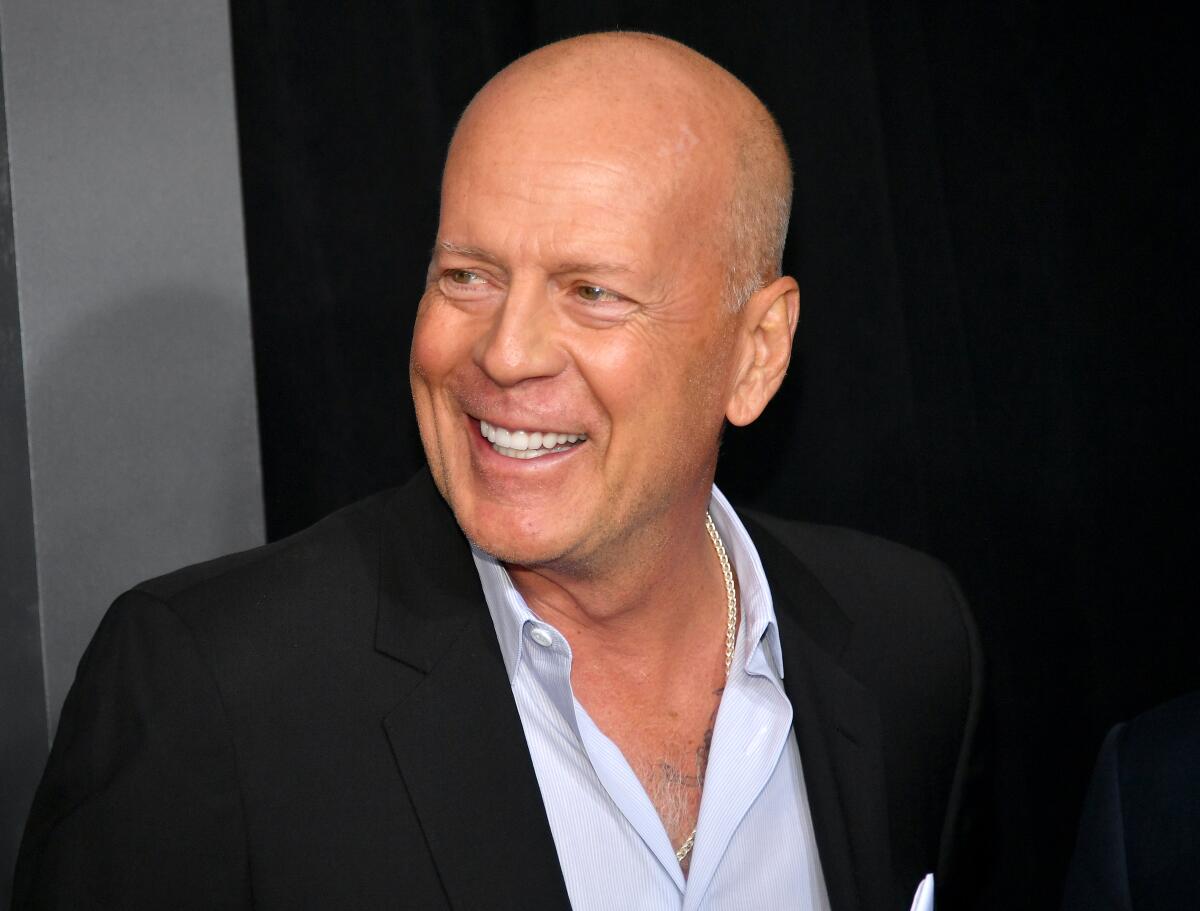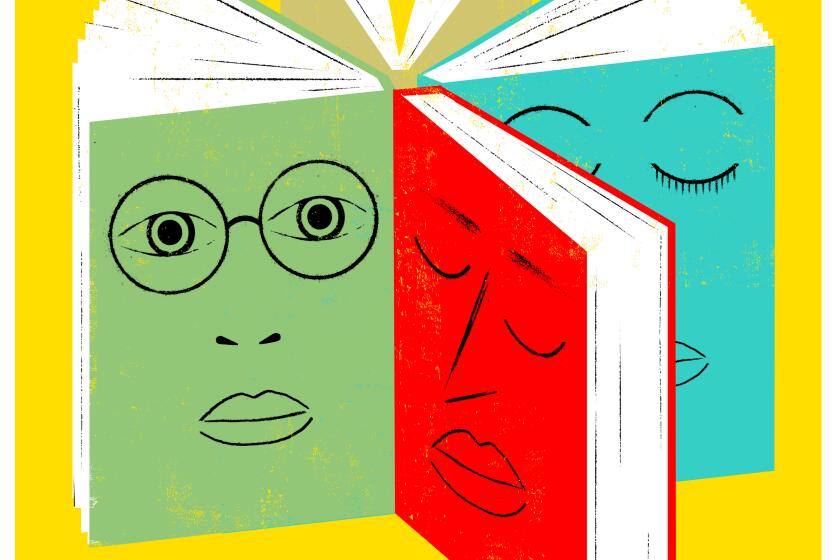What is aphasia? Behind the brain disorder that has affected Bruce Willis

Action-movie star Bruce Willis is stepping away from acting after being diagnosed with the brain disorder called aphasia, his family said Wednesday.
The condition affects about 2 million Americans, making it more common than Parkinson’s disease, cerebral palsy or muscular dystrophy, according to the National Aphasia Assn. Nearly 180,000 Americans develop the condition each year.
“Our hearts go out to the Willis family, and we know their close-knit, supportive nature will help them navigate aphasia in the coming days,” the NAA said in a statement. “We are here for the Willis family as well as all people with aphasia.”
Other celebrities who have been diagnosed with aphasia include actress Sharon Stone, who developed reading and speech issues after collapsing from a brain aneurysm in 2001. Stone returned to acting after years of recovery.
Bruce Willis is the latest entertainment luminary to go public with an aphasia diagnosis. Others include Emilia Clarke and Sharon Stone.
What causes aphasia?
Aphasia occurs most commonly after a stroke or a traumatic brain injury — about 25% to 40% of stroke survivors develop aphasia, according to the NAA.
When a stroke patient suffers aphasia, it’s usually due to a type of stroke that affects the dominant part of the brain on the left side, which controls language skills, said Dr. Nneka Ifejika, a stroke rehabilitation physician at the University of Texas Southwestern’s Peter O’Donnell Jr. Brain Institute.
It can also be caused by a brain infection, a brain tumor or another degenerative disease that causes progressive brain damage, such as Alzheimer’s or dementia.
What are the symptoms of aphasia?
People with aphasia often struggle with speaking and writing.
According to the NAA, the condition is an acquired communication disorder that impairs a person’s ability to process language but does not affect intelligence.
“People with aphasia are intellectually intact,” said Michael Biel, an associate professor of communication disorders at Cal State Northridge. Their “mental competency is hidden by this disability. ... It’s quite easy for people with aphasia to be stigmatized as less than mentally competent.”
The exact symptoms can depend on the type of aphasia a person has, which depends on where the underlying brain damage occurred.
Some types of aphasia can result in the person speaking in complete sentences with unintelligible meaning, while other types can affect the person’s ability to name objects or repeat words and sentences. The most common issue is word-finding difficulty, Biel said.
Some individuals with aphasia may also experience right-sided weakness or paralysis of the arm and leg if the damage occurred in the frontal lobe of the brain, which is important for motor movements.
Inside the Aphasia Book Club, where participants work to improve their language skills with literature at the Echo Park Branch of the Los Angeles Public Library.
Is there a cure for aphasia?
There are no medications for the treatment of aphasia. The likelihood of recovery depends on the cause; the prognosis for aphasia caused by a progressive neurological disease such as Alzheimer’s is much worse than for aphasia caused by a stroke, Ifejika said.
If the patient can still talk, speech and language therapy can continuously improve their language skills.
“Aphasia is a condition that needs to be treated, that has just as much impairment as a physical condition,” Ifejika said.
In Los Angeles, the Aphasia Book Club meets weekly at the Echo Park branch of the Los Angeles Public Library. The group offers support to people suffering from aphasia and helps them improve their language skills — reading, writing, speaking, comprehension — through book discussions.
Other forms of therapy include singing, which activates the speech center in the right side of the brain, Ifejika said.
How do you communicate with someone with aphasia?
The most important thing is to continue engaging with the person, Ifejika said.
Someone with aphasia usually recognizes their speech issues and is “more likely to stop speaking entirely.”
“You want to continue to talk to them, continue to engage with them, continue to interact with them,” Ifejika said.
The NAA provided several tips for communicating with someone suffering from aphasia:
- Use more than one form of communication, including facial expressions, gestures and pictures.
- Pause and listen.
- Speak face-to-face in a quiet space.
- Keep sentences brief and simple.
- Verify that the person understands you.
- Don’t pretend you understand what the person is saying if you don’t.
- Speak to the person directly, rather than going through someone else.
- Ask if they want help.
- Ask yes or no questions.
- Take breaks from the conversation.









